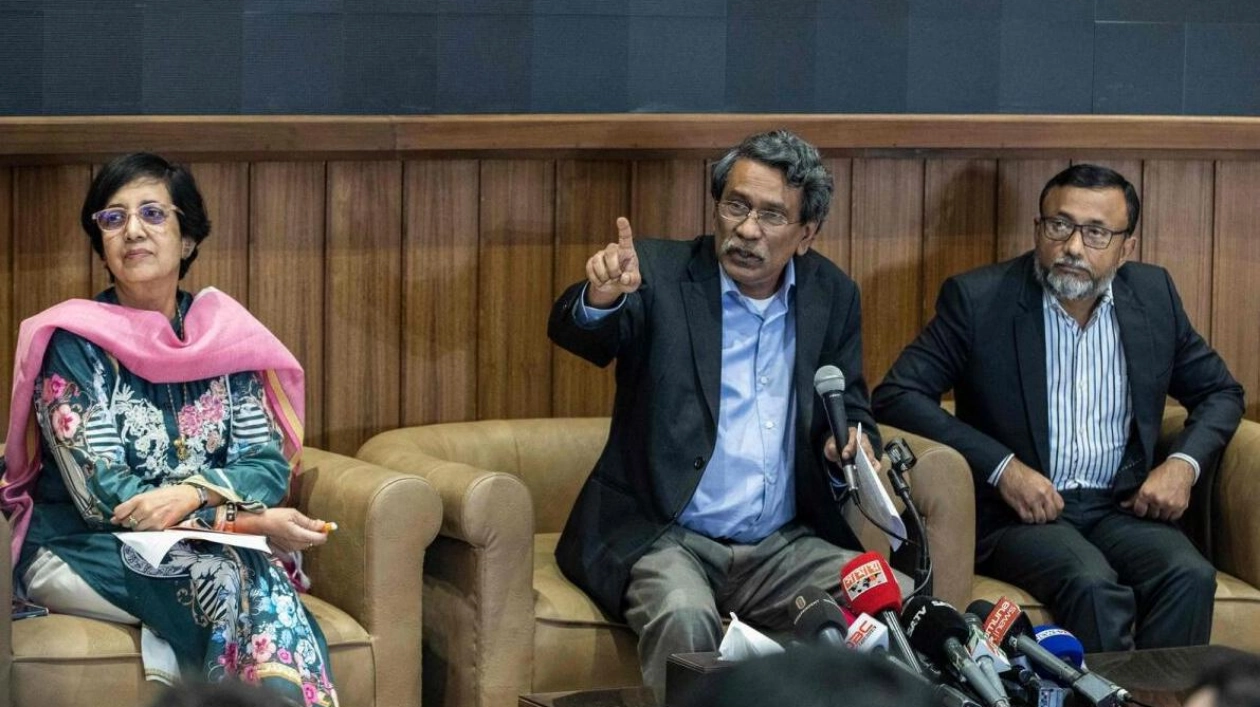Ali Riaz (C), the head of the Bangladesh Constitutional Reform Commission, addressed a press conference in Dhaka on November 3, 2024. — AFP
The recently appointed Bangladesh Constitutional Reform Commission, established in the aftermath of the student-led revolution that ousted the long-standing autocrat Sheikh Hasina, pledged on Sunday to eliminate 'fascism' to protect democracy. The commission is required to submit its recommendations to the interim government by December 31, as part of the comprehensive changes promised by Nobel Peace Prize winner Muhammad Yunus, who was appointed the country's 'chief advisor' following the August uprising.
Ali Riaz, the chair of the reform commission and a political science professor at Illinois State University, stated that the goal is to draft a constitution that 'reflects the aspirations' of Bangladeshis. 'Under the current constitution, the prime minister holds immense power, and this centralization of authority paves the way for fascism,' Riaz said in his first press briefing since the commission's formation in early October. 'The lack of balance in power is the source of fascism,' he added.
The commission's members include senior barristers, law professors from Dhaka University, rights activists, and a student leader—all of whom played key roles in the protests against Hasina. The reform process will involve multiple rounds of discussions with constitutional experts, lawyers, and representatives from civil society, as well as between the government and political parties. 'The interim government will discuss the proposals with all political parties and forward their recommendations to the commission,' Riaz explained. 'The final version will be established after a series of discussions.'
Hasina's 15-year rule was marked by widespread human rights abuses, including the mass detention and extrajudicial killings of her political opponents. Her government was also accused of politicizing courts and the civil service, as well as staging lopsided elections, to dismantle democratic checks on its power. Yunus has previously stated that he inherited a 'completely broken down' system of public administration that requires a comprehensive overhaul to prevent a return to autocracy.
Source link: https://www.khaleejtimes.com






